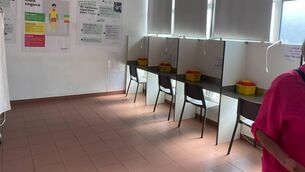Abortion laws: Doctors play ‘roulette’ with lives

Doctors have to play “medical roulette” with patients’ lives in applying Ireland’s restrictive abortion laws, the head of the National Maternity Hospital (NMH) said.
It comes as figures show 21 of the 3,735 who travelled to the UK for abortions last year were children.













